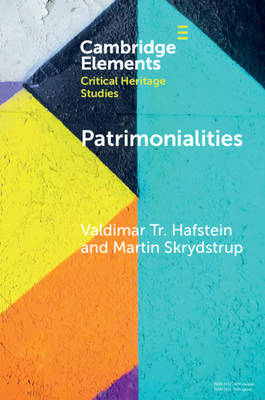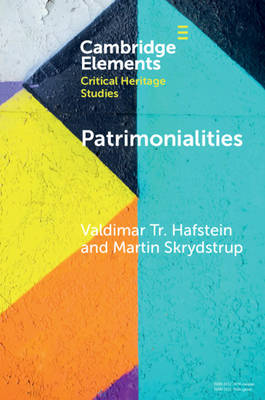
- Afhalen na 1 uur in een winkel met voorraad
- Gratis thuislevering in België vanaf € 30
- Ruim aanbod met 7 miljoen producten
- Afhalen na 1 uur in een winkel met voorraad
- Gratis thuislevering in België vanaf € 30
- Ruim aanbod met 7 miljoen producten
Zoeken
Omschrijving
With empirical touchstones from Europe, North America, Africa, Asia and the Pacific, the authors argue that heritage and property represent different approaches to subject formation, produce distinct bodies of expertise, and belong to different rationalities of government in a global patrimonial field: that cultural property is a technology of sovereignty, part of the order of the modern liberal state, but cultural heritage a technology of reformation that cultivates responsible subjects and entangles them in networks of expertise and management. While particular case trajectories may shift back and forth from rights-based claims and resolutions under the sign of cultural property to ethical claims and solutions under the sign of cultural heritage, the authors contend that there is significant analytical purchase to be gained from their distinction. Using a critical, comparative approach, they make the case for a historically grounded and theoretically informed understanding of the difference between the two terms.
Specificaties
Betrokkenen
- Auteur(s):
- Uitgeverij:
Inhoud
- Aantal bladzijden:
- 75
- Taal:
- Engels
- Reeks:
Eigenschappen
- Productcode (EAN):
- 9781108928380
- Verschijningsdatum:
- 3/12/2020
- Uitvoering:
- Paperback
- Formaat:
- Trade paperback (VS)
- Afmetingen:
- 152 mm x 229 mm
- Gewicht:
- 158 g

Alleen bij Standaard Boekhandel
+ 63 punten op je klantenkaart van Standaard Boekhandel
Beoordelingen
We publiceren alleen reviews die voldoen aan de voorwaarden voor reviews. Bekijk onze voorwaarden voor reviews.











